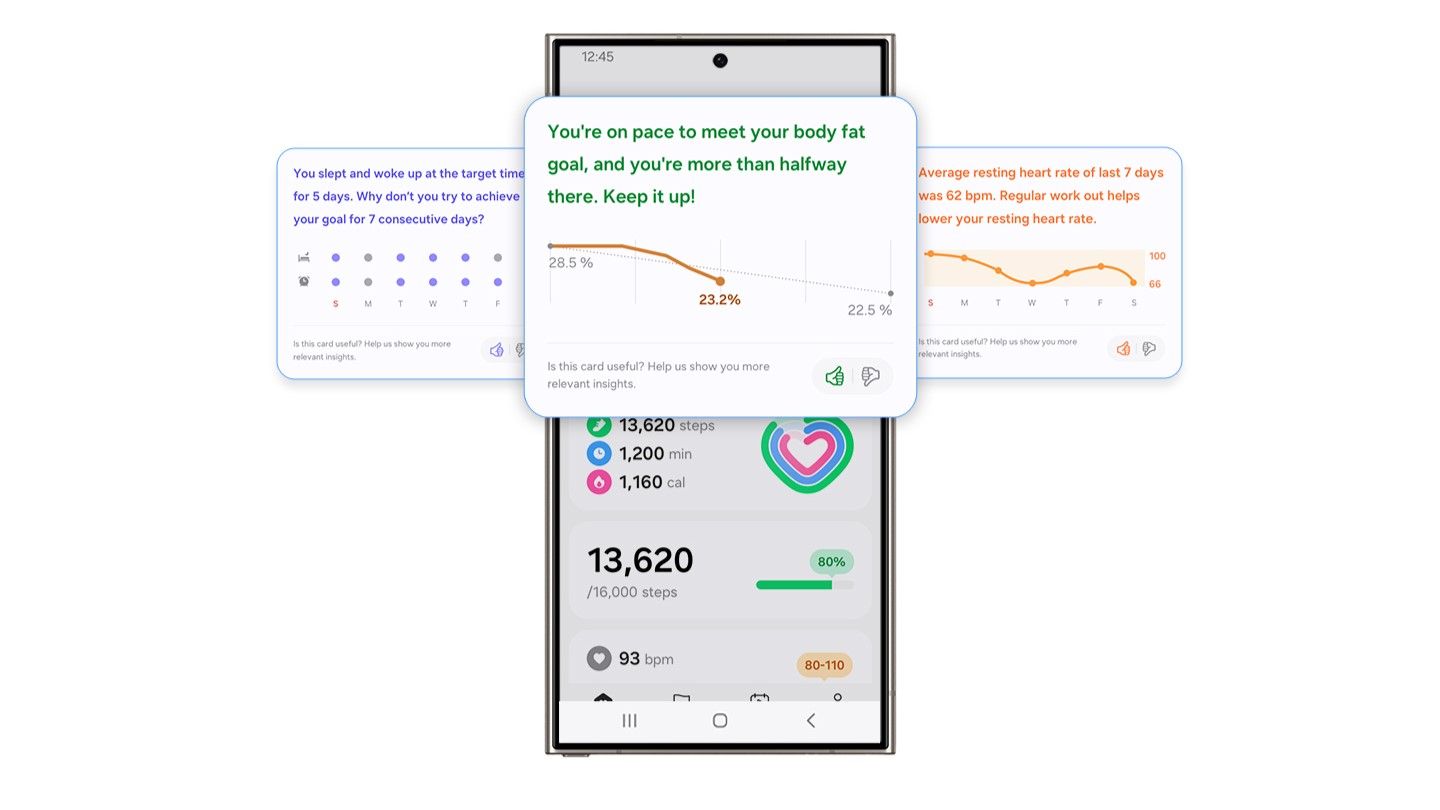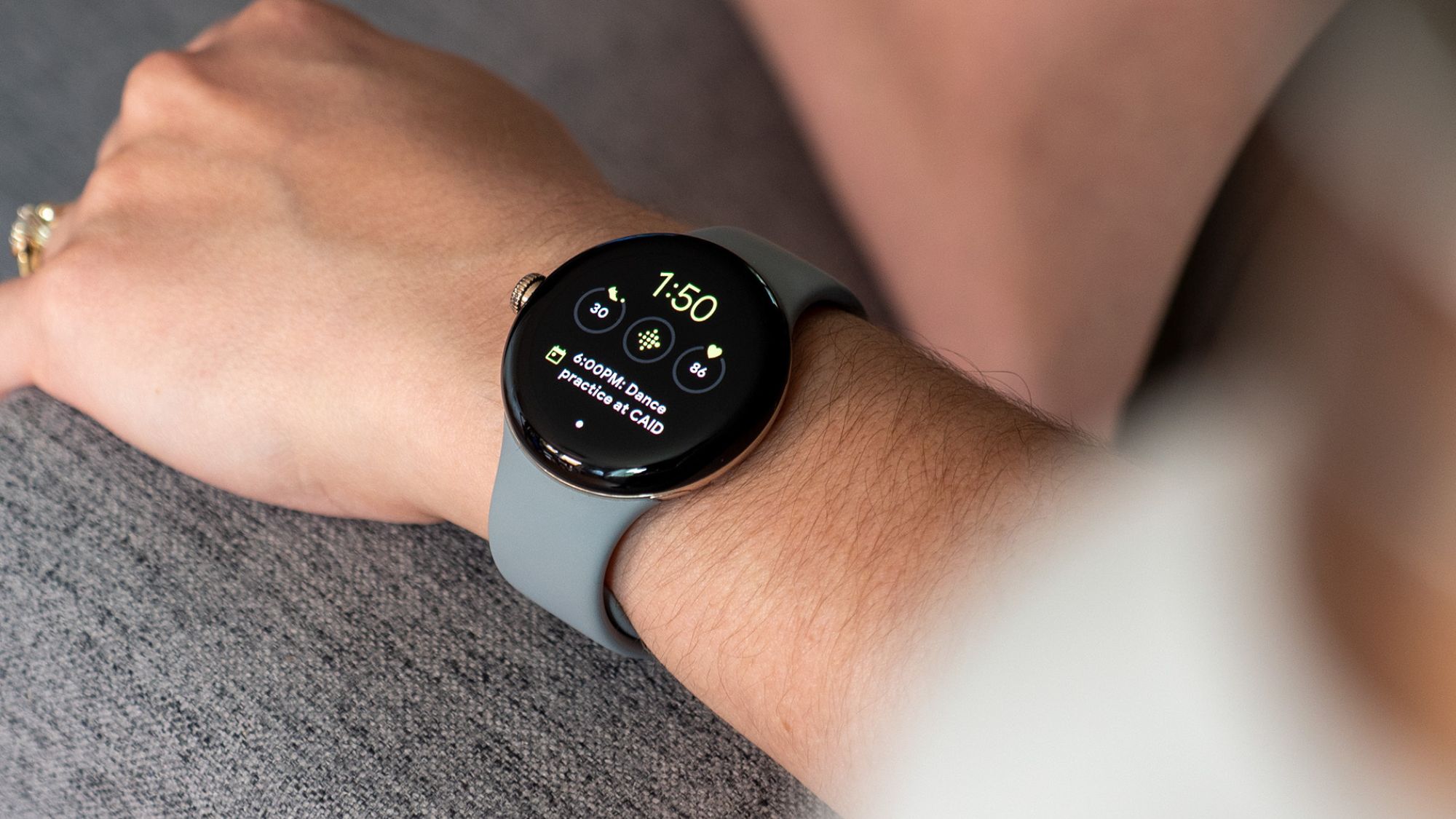Samsung could leapfrog Apple and Google with new Galaxy AI fitness tools for Galaxy Watch 7
Galaxy Watch 7 owners will get a personalized fitness coach via Galaxy AI, helping Samsung catch up to (or surpass) the competition.
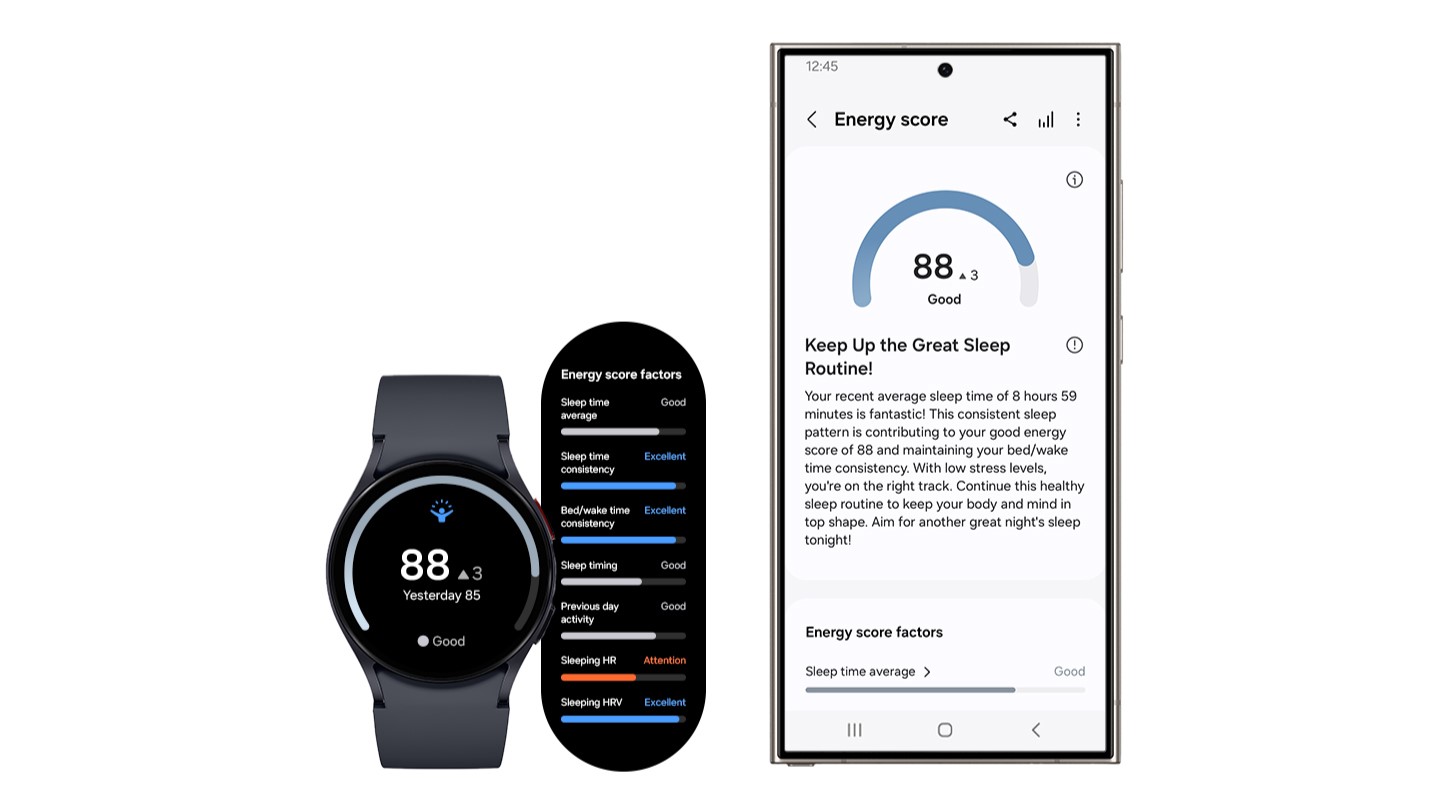
What you need to know
- Samsung is "combining Galaxy AI with Samsung Health" with its next update.
- Its "on-device AI" will give the Galaxy Watch access to key features like an energy score, workout routines, racing past routes, and new HR metrics.
- Samsung also promises "enhanced health algorithms" for better health accuracy.
- One UI 6 Watch will add these Galaxy AI tools to Galaxy Watches "later this year," most likely in August.
- Galaxy AI will be free "until the end of 2025."
Samsung will add Galaxy AI features to both its Samsung Health app and Galaxy Watches this summer. Tailor-made sleep, health, and workout recommendations could help the Galaxy Watch series catch up to its fitness watch rivals — or even surpass them.
Starting this June, a select few One UI 6 Watch beta users will get to test out new personalized sleep and fitness coaching before these features roll out to the Galaxy Watch 4, 5, and 6 "later this year." We assume this will be in late August, shortly after the Galaxy Watch 7 launch.
Samsung's announcement suggests some of these Galaxy AI features will use "powerful on-device AI," while other metrics will rely on Samsung Health data from your phone or the cloud. The company announced features include an Energy Score that analyzes "average sleep time, sleep time consistency, bed/wake time consistency, sleep timing, previous day activity, sleeping heart rate, and heart rate variability" to quantify the user's daily condition.
Fitbit, Garmin, and Oura all have similar Daily Readiness or Body Battery scores that help judge the impact of your sleep, workouts, and stress levels, so we're glad to see Samsung join their ranks.
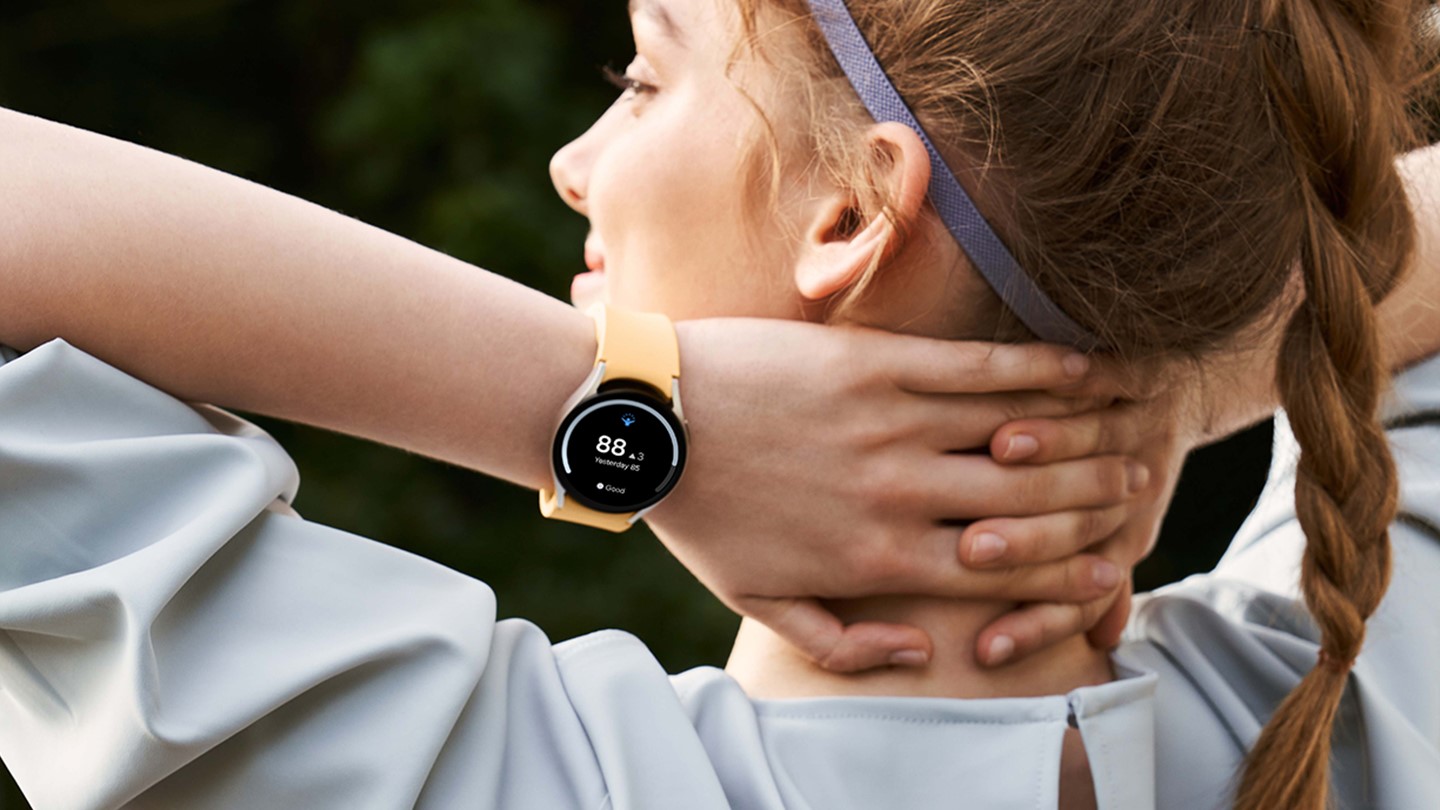
Galaxy Watch owners will also get new "sleep indicators" that collect data on movement during sleep, sleep latency, heart rate, and respiratory rate and analyze it to help users "build better habits."
On that front, Samsung will provide "motivational tips, insights, and guidance" for customized health goals in the Samsung Health app. While we don't have a list of potential Wellness Tips, the sample below shows goals like lowering your body fat, consistent sleep streaks, and lowering your resting heart rate.
The biggest Galaxy AI changes to Samsung Health relate to fitness. While the One UI 5 Watch update added personalized heart rate zones, this update will add aerobic and anaerobic threshold metrics to analyze performance.
Get the latest news from Android Central, your trusted companion in the world of Android
Essentially, the aerobic threshold indicates the heart rate at which you can train for extended stretches without lactate buildup, burning fat instead of sugar. The anaerobic threshold is your max-effort level, where your body can't inhale oxygen quickly enough to convert it into energy, accumulating lactate in your blood until your muscles are too stiff to move.
Running watches like Garmin Forerunner 965 and COROS PACE 3 use this data to determine your training load and VO2 Max, guiding your running training. If Samsung's Galaxy AI can bring this kind of tool to a mainstream smartwatch, it would be a real game-changer for the industry.
In addition, Samsung promises "greater precision and accuracy" for its health metrics thanks to "enhanced health algorithms" based on its AI.
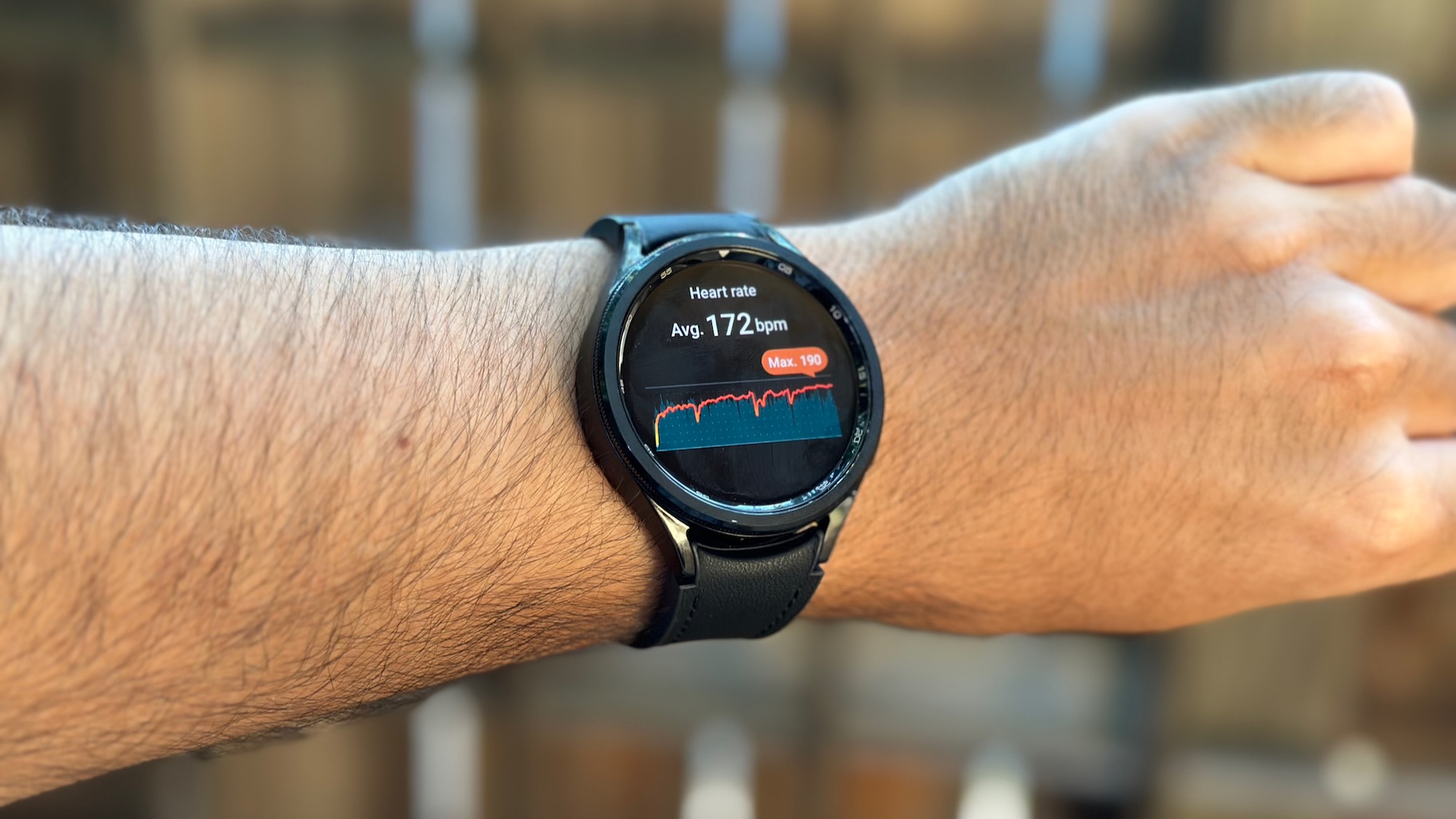
Beyond that, Samsung promises a new "Workout Routine" that lets you "combine various exercises for a personalized workout and seamlessly transition to the next exercise without stopping." It sounds very similar to Garmin's indoor workouts, which lets you pick from thousands of potential exercises while building your routine.
While Apple and Google/Fitbit rely on workout videos, Samsung will take a more self-guided approach. We wonder if the Galaxy AI will recommend exercises based on your fitness level or if athletes must build workouts entirely by themselves.
Lastly, Samsung promises a "Race" mode to "track current and past progress when running or cycling." Racing previous routes is a common feature on fitness watches, and Apple added this option with watchOS 9; we're glad to see Samsung catch up on this front.
A long-overdue shift in priorities
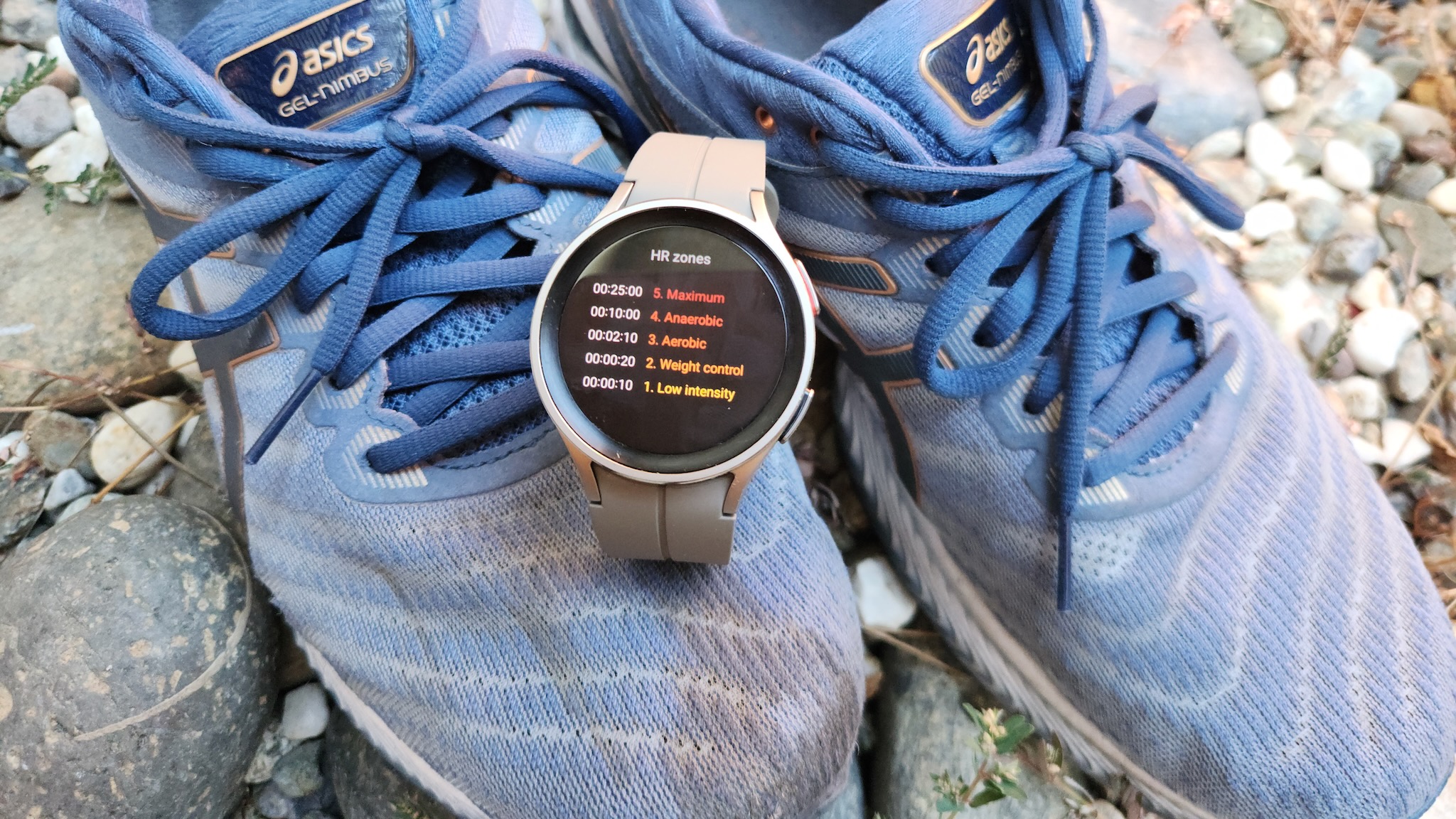
When I reviewed the Galaxy Watch 6 last year, I found its health sensors could use some accuracy upgrades, and its barebones fitness features could use a revamp. So when Samsung announced Galaxy AI earlier this year, I noted how I was more excited by Galaxy AI than Samsung's upcoming hardware, for its potential to improve on both fronts.
Wednesday's announcement only bolsters those hopes. Whether you buy the Galaxy Watch 7 or Galaxy Ring — or even if you have an older Galaxy Watch — you should have a much better experience courtesy of the One UI 6 Watch update.
Of course, it's not a certainty. AI enhancements don't magically make everything better. But there is precedent. Fitness brands like Garmin and Fitbit depend on background algorithms to analyze your health metrics and workout data and tell you how tired or fit you are.
Plus, watches need reliable algorithms to determine heart rate data when the sensors aren't perfectly aligned with your skin. The Fitbit Charge 6 received Google's HR algorithm from the Pixel Watch 2, and both have performed very well in HR accuracy tests. If Samsung truly has "enhanced health algorithms," that'll help it keep up.
Neither Apple nor Samsung has successfully implemented personalized fitness recommendations before now. Both brands have a higher bar to clear than the competition and more "casual" users who might hurt themselves with bad advice. So, for Samsung to beat Apple to the punch is a pretty big deal.
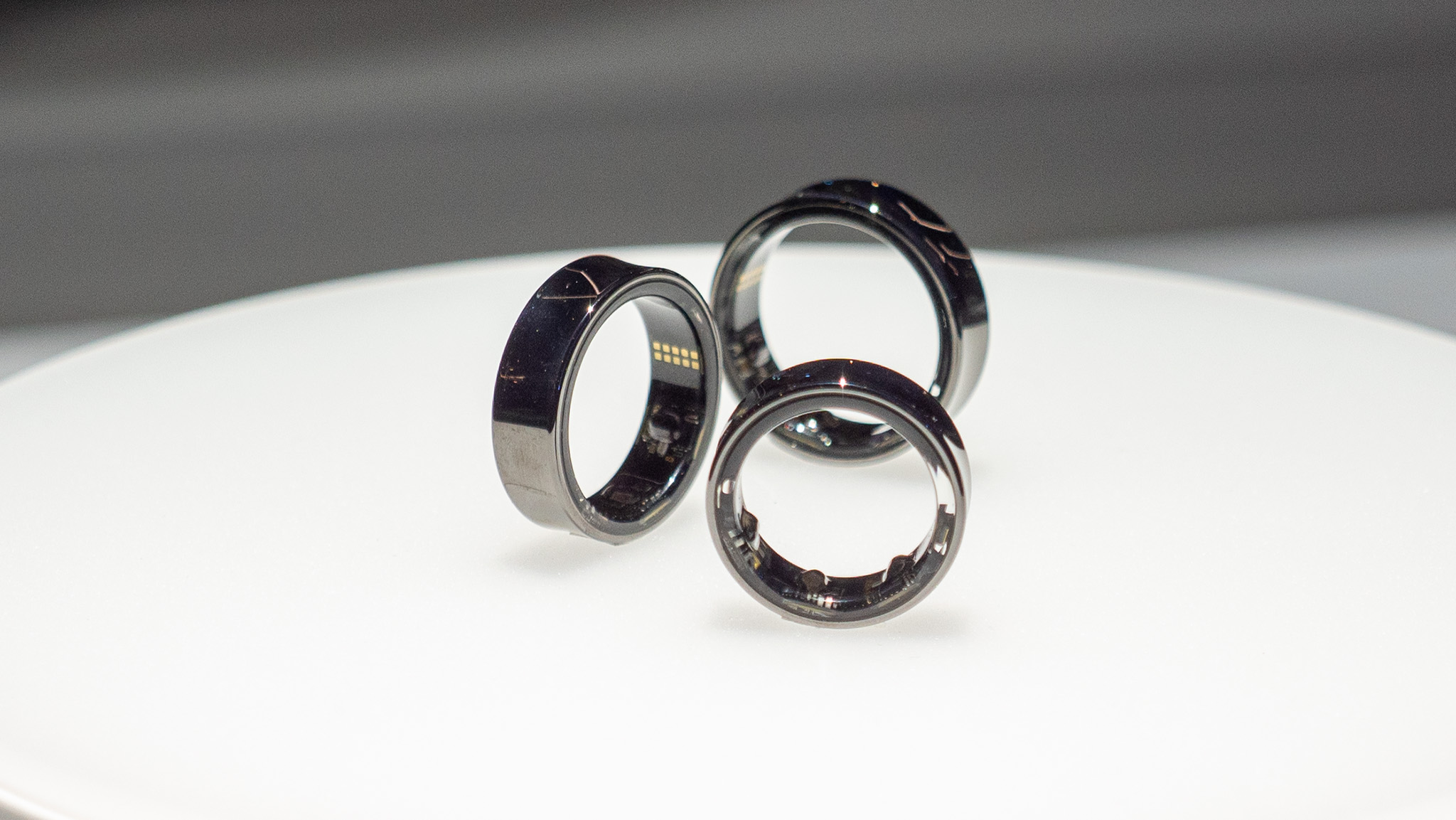
My main question is whether or not you'll have to pay for these insights or not. We've heard rumors that the Galaxy Ring will require a subscription of $10/month or less on top of a $300+ price tag. Samsung has traditionally given users free Samsung Health insights, but if its new smart ring has a subscription, it's no great leap to assume the Galaxy Watches will as well.
Samsung's press release says, "Galaxy AI features will be provided for free until the end of 2025 on supported Samsung Galaxy smartphone devices," but that wording could leave the door open for a subscription on Galaxy rings and watches in the meantime—and we don't know how much it'll cost once that grace period ends.
The Pixel Watch 2 already has many of Samsung's promised Galaxy AI insights via Fitbit Premium, but that costs $10/month after a six-month free trial. If Samsung gives that same data for free, it would seriously undercut Google and Fitbit; even if Samsung eventually charges money, Galaxy Watch owners could get over a year of free Wellness Tips and Energy Score data first.
I still have a ton of questions about One UI 6 Watch and how it'll compare to Wear OS 5 for fitness. But today's announcement is undoubtedly a step in the right direction.

Michael is Android Central's resident expert on wearables and fitness. Before joining Android Central, he freelanced for years at Techradar, Wareable, Windows Central, and Digital Trends. Channeling his love of running, he established himself as an expert on fitness watches, testing and reviewing models from Garmin, Fitbit, Samsung, Apple, COROS, Polar, Amazfit, Suunto, and more.
You must confirm your public display name before commenting
Please logout and then login again, you will then be prompted to enter your display name.
